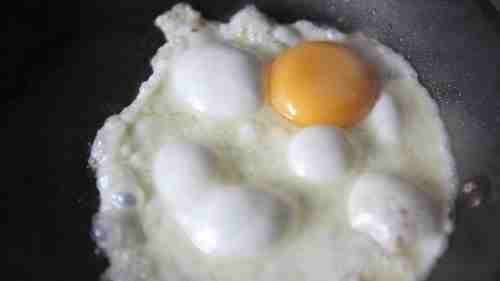A chemical transition is when one chemical material is transformed into another. For example, iron becomes rust. A chemical transition is different from a physical change where atoms or molecules do not get rearranged. Instead, completely new material is created.
When you fry an egg, it’s a chemical transformation. The liquid in the egg turns from liquid to solid. Frying an egg is a reaction in chemistry. This is an example of an endothermic or uses heat to create the reaction.
The cooking of eggs is not a physical change. It must be capable of being converted back to its original form. The physical change is analogous to the transformation of water into ice or vice versa, which changes the state but does not change the chemical nature. Although the egg is not changed in its state after it has been cooked, it will change its chemical composition from its raw, uncooked form. After cooking, the proteins in eggs will be denatured, and their shapes will change. They are chemically altered. Denaturation is a sign that a protein cannot perform its functions in the body’s metabolism.
What chemical reaction occurs when you cook an egg?
Cooking eggs involves breaking down old egg protein bonds through denaturation and creating new ones. After proteins are bound with water by heat, eggs become solidified and turn a different color when cooked eggs.
Is it a chemical reaction to cook meat?
As food cooks, chemical changes occur in the food. You can alter the chemical composition of food by browning meats or toasting bread. This can often enhance flavor. Digestive difficulties are made easier by proteins and fibers denatured and broken down. During cooking, there are many chemical reactions.
Last words
This is what you can do when you whip egg whites. You use mechanical energy to cause the protein bonds in your eggs to separate and then re-connect. The egg will remain in this state once these strong new bonds have been formed. These proteins have created a network of strong and permanent cross-links. An egg that has been chemically altered or cooked will never return to its original form.
Use moderate heat when cooking eggs. Egg protein becomes tougher and more rubbery when heated to high temperatures. High heat is used to boil eggs. This causes a chemical reaction between yolk and white, which results in a greenish film around the yolk. Iron sulfide is formed when iron in the yolk reacts with hydrogen sulfide (white).
